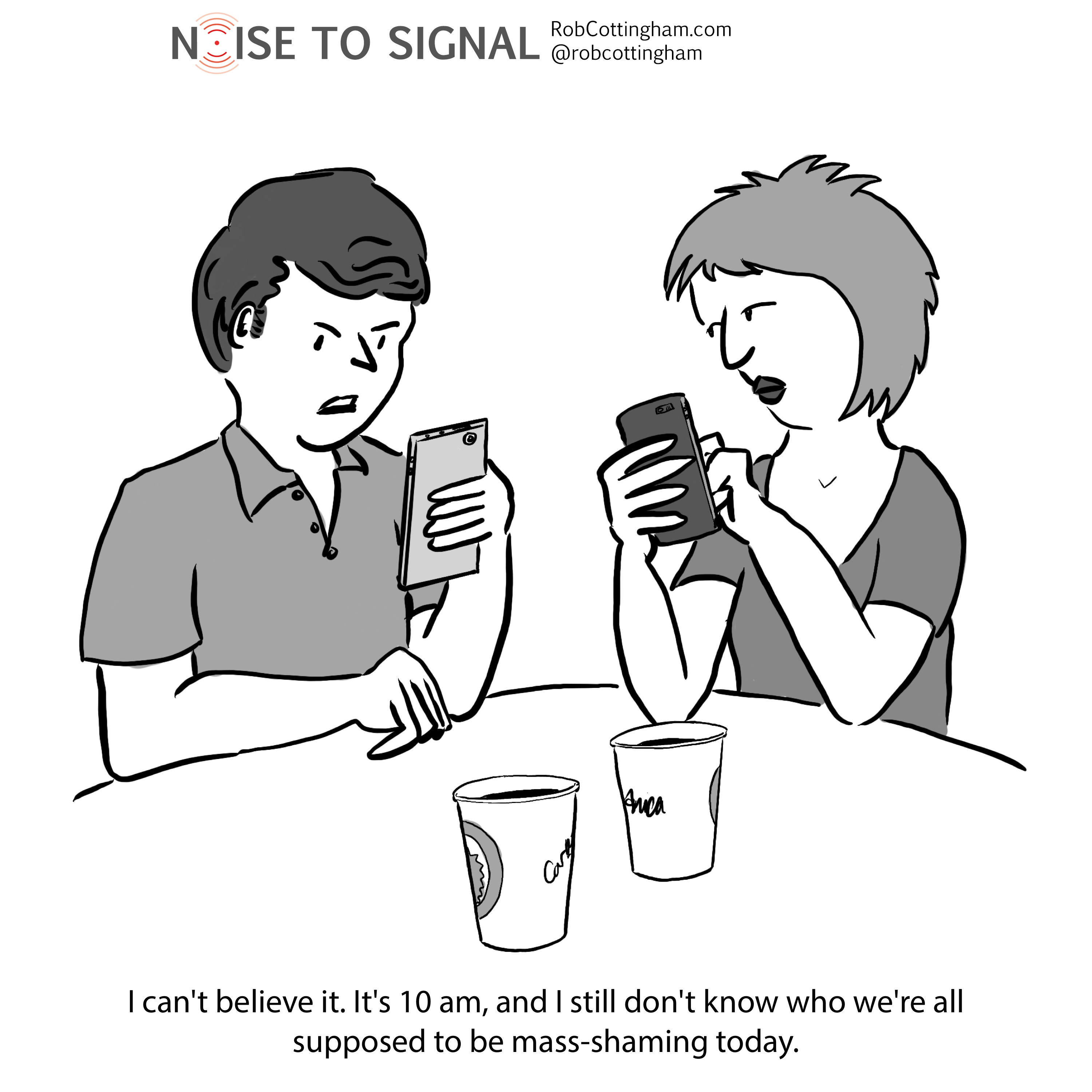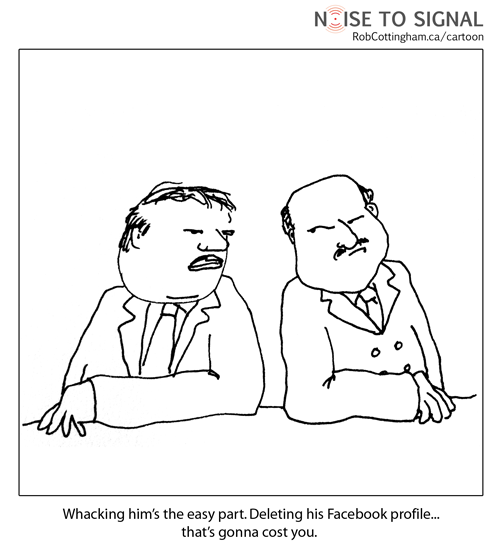It rarely fails. I’ll post a little rant to Facebook about some company that did something I thought was dumb, without disclosing their identity. And someone will chime in with “Who are they? Name and shame!”
They often mean that ironically, without malice. But the temptation to turn vigilante is always there. And often, the accused rarely has any idea they’re even on trial in the court of social opinion until long after the prosecution has rested its case, the jury has returned a guilty verdict and the executioners are knocking on the door of their Twitter account.
And it’s not always mob mentality, although that’s certainly what gets the most attention. (See So You’ve Been Publicly Shamed for a pretty decent examination of how that kind of incident can unfold… and the wildly disproportionate damage it can do.) Sometimes it’s just judge mental, shaming comments on blog posts or news stories.
Try posting about your parenting sometimes, especially if you’re a mom. For some reason, there’s a horde of people ready to judge, condemn and shame every perceived parenting failure. They cart around a metric crap-tonne of unexamined assumptions, and they’ll blithely say the most awful, hurtful, brutal things.
“Be kind,” the saying goes, “for everyone you meet is fighting a hard battle.” That battle is usually hidden, and the glimpses we get — especially online — are just molecule-thin slivers. They have none of the context we’d need to truly understand the choices someone else makes, especially under pressure.
I believe in accountability, and there are times when shame is richly deserved. But we owe it to each other to at least suspend judgement until we can dig deep and find some equivalent to the presumption of innocence that we grant accused criminals. We mostly don’t know shit about each other, and a default assumption of goodwill until proven otherwise seems like a pretty good place to start if we want the online and offline worlds to have at least some sense of community and compassion.


